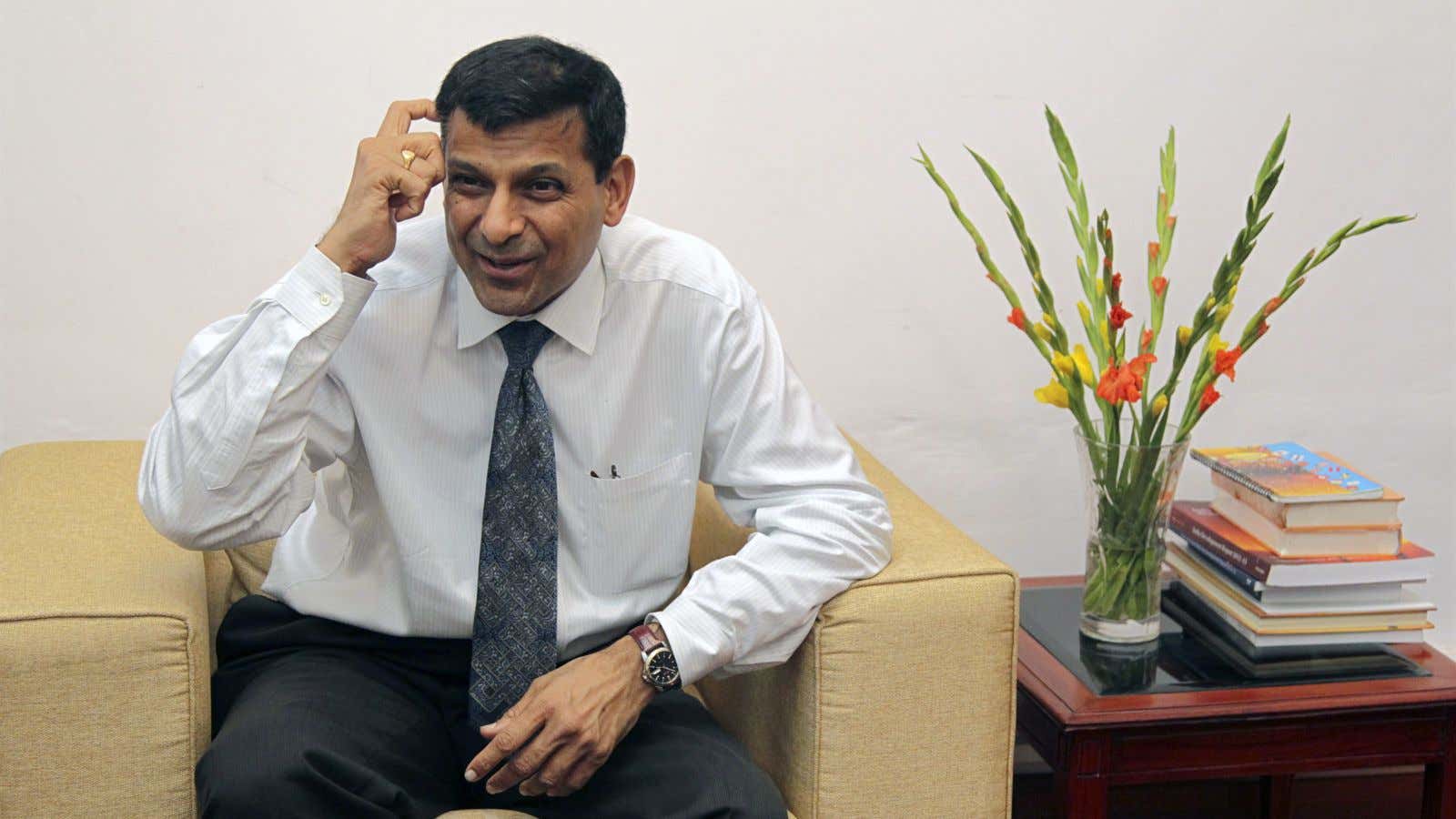India’s former “rockstar central banker”, Raghuram Rajan, has a word of advice for the Narendra Modi government in the backdrop of its strained relations with the central bank: “the sensible government knows when to back off.”
In an interview with the American weekly newspaper Barron’s last week, Rajan said governments meddling in their central banks’ affairs can affect the latter’s credibility. Based on his personal experience as the Reserve Bank of India’s (RBI) governor, Rajan was asked about the importance of central bank autonomy. Here’s what he had to say:
“There is a trend across countries of populism where politicians think they are empowered by the people and therefore have a mandate to do whatever they want. As a result, the existing institutions that constrain them are up for questioning. Institutions need to respond to people, but some of the limits on political intervention were set up precisely because the popular incentive is to do the wrong thing…The tussles in Turkey where the president is telling the central bank not to raise rates—or similar tussles in India or in the US—are to some extent just a more extreme version of natural tussles that happen. The sensible government knows when to back off.”
During his term at the RBI, Rajan had resisted pressure on various issues from the government. Two years since his departure, the tensions have not died down.
Until a truce was called recently, the RBI and the government were sparring openly over a litany of issues. At one point, the situation was so dire it was even expected that Urjit Patel, the current RBI governor, would step down. However, after a nine-hour meeting last month, many of the differences between them were ironed out.
The feud erupted when the government reportedly sought to tap into the RBI’s excess capital reserves. Then, it also wanted the central bank to relax lending norms to smaller businesses.
As the financial health of many state-owned lenders deteriorated due to the huge share of bad loans in their books, the RBI had imposed certain restrictions on 11 banks. This was another sore point for Team Modi. The government also raised objections to some of RBI’s tighter regulations introduced to tackle toxic loans. However, the central bank had refused to budge from its stance as that would lead to a further increase in the pile of non-performing assets (NPAs).
In the interview with Barron’s, Rajan seemed to concur with the RBI’s approach.
“If you really put your mind to it, it (bad loan clean up) could be done quickly; thus far, this is a manageable crisis. But the longer it gets, the more it morphs into a growth and bad loans problem. That’s why the faster you clean it up the better,” he said.
At the end of March 2018, the banking sector’s gross NPAs had risen to 11.6% of their combined loan book from 10.2% in September 2017. These are loans on which repayments have been delayed and there is a chance that the borrower may default.
It is not the first time that Rajan has openly voiced his opinion against the Modi government. In his three-year stint as RBI governor, which ended in September 2016, Rajan minced no words in critising many of the government’s polices. This intensified the friction between him and the Modi dispensation.
Rajan was the first RBI governor in 20 years to not have been offered a second three-year term.
